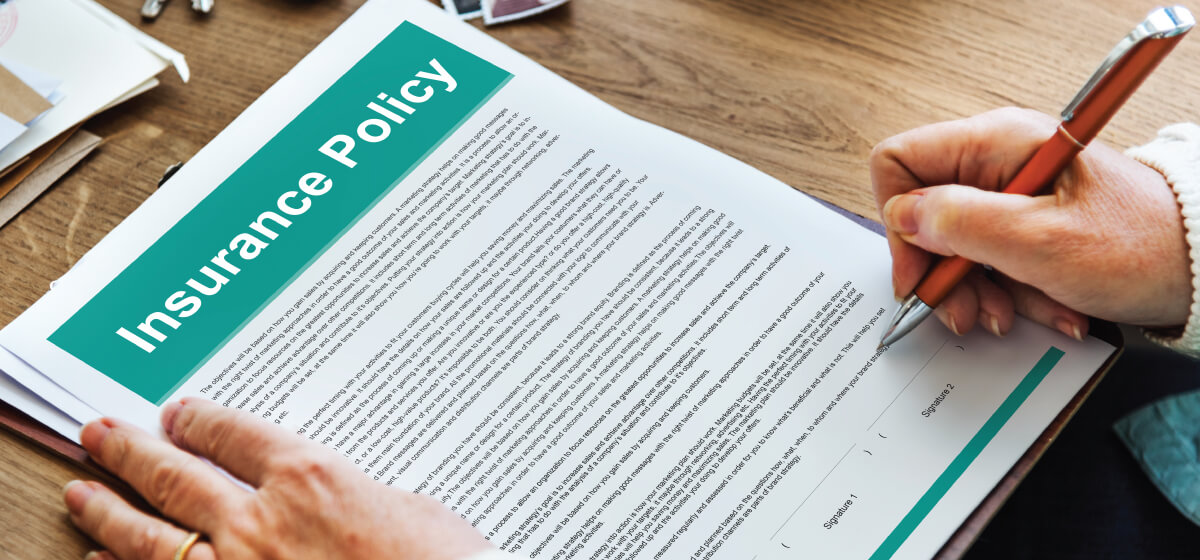The excitement of opening your very own corner shop and making your mark in this lucrative sector is often tempered by the dull but extremely necessary extras. One such area you’ll need to think about is where insurance fits in.
Most of the 50,387 stores in the UK convenience sector take out a product called convenience store insurance. It’s not a separate type of insurance but a combination of policies that cover all the essentials you’ll need to protect your business.
Here’s what you must know about convenience insurance and what you’ll need as part of your package.
Do you need convenience store insurance?
Convenience store insurance might be mandatory in certain circumstances. For example, it’s the law that any business that employs staff must have employers’ liability insurance. So, if you’re planning on building a team, the answer is already yes.
However, even one-man operations still need insurance, even if you’re not bound by law. Although the convenience store market is expected to experience a rapid 12% growth from 2025 to 2029, all of that goes away if a catastrophe strikes.
What happens if you fall ill and can’t work? What happens if a fire breaks out and destroys the building? What if someone files legal action?
Unless you’re independently wealthy and don’t mind taking the chance, insurance is what stands between your business and going out of business. In short, whether you need insurance isn’t even a real question because the answer is clear.
Find your Next Convenience Store Today
What insurance policies do convenience stores need?

Every business differs because convenience stores don’t always operate in the same way. A corner shop offering home delivery might need a commercial auto insurance policy, whereas you won’t need employers’ liability if you’re not looking to have any staff.
Here’s a breakdown of the main types of coverage forming part of convenience store insurance.
Public liability insurance
Public liability insurance protects you financially if a third party makes a claim against you. It will cover any legal costs and any judgments made against you. Most insurers will include this with a minimum of £2 million of coverage.
An example of a situation where public liability coverage comes to the rescue is if a customer slips on a wet floor and breaks their leg. Not only does it cover their physical injuries, but it also covers claims relating to damaged property.
Employers’ liability insurance
Employers’ liability provides the same coverage as public liability insurance, but for your employees. Any business in the UK that hires at least one employee must legally have this type of coverage. It’s a requirement enshrined in law per the Employers’ Liability (Compulsory Insurance) Act 1969, and you can be fined heavily for failing to comply.
Commercial property coverage
Property coverage shields your assets if they’re damaged or destroyed due to weather events and various other risks. If you have to repair or replace anything because of any covered risks, property coverage ensures you’re not left paying for it out of your own pocket.
Examples of things it covers include:
- Fixtures
- Fittings
- Stock
- Contents
- Buildings
Business interruption insurance
The priority after any catastrophe is reopening your shop’s doors as soon as possible. If you experience a disaster, business interruption insurance provides regular payments until you’re back on your feet.
Serious disruptions can ruin your business for months, or even years, but this coverage protects your income, ensuring you and your family stay stable while you do the hard work of getting your shop back in order.
Commercial legal protection coverage
Public and employers’ liability insurance won’t cover every potential claim made against your business. Your shop might face other events that are not covered under your usual coverage. These could include:
- Tax disputes
- VAT disputes
- Contract disputes
- Employment disputes
If you’re taken to court purely for commercial reasons, you may discover to your horror that you’re not actually covered. And that’s where commercial legal protection insurance kicks in.
How much will insurance cost for a new convenience store?
Your insurance costs vary depending on:
- The type of coverage you take out
- Your activities
- Where you’re located
- The amount of coverage
- The insurer you decide to go with
The principle is that the more coverage you need, the more it’s going to cost.
It’s also essential to remember that insurers will price based on risk. For example, if you’re located in a high-crime area statistically, insurance costs will be higher because there’s a perceived increased likelihood of making a claim.
The best way to lower your premiums is to shop around and get quotes from multiple insurers before settling on one.
What cover do you need before you buy a convenience store?

Taking out certain types of insurance makes sense when you’re still in the process of buying your store.
Generally, there are three insurance types you might need:
- Business Interruption Insurance – Negotiating provisional coverage starting at the pre-agreement clause stage protects your interests if any damage occurs during the handover process.
- Commercial Property Coverage – Your property coverage should be arranged to take effect immediately when you complete the purchase of your new store. Since it covers weather-related disasters and vandalism, you’ll be covered if the damage occurs between buying and opening.
- Contents Insurance – If you’re buying an existing store with stock, fixtures, or fittings included, you’ll also want contents coverage. You may also be able to get this bundled with your property coverage.
Obviously, it depends on what you’re buying. You might not need all three. For example, if you’re buying an empty building with nothing inside, contents insurance won’t be necessary at this stage.
Browse Our Current Convenience Store Listings
What cover do you need before you open your convenience store?
Between buying and officially opening the store, you’ll also need coverage. This is often the most confusing point for entrepreneurs because it isn’t clear what risks you’re protecting yourself against.
Generally, you should look into coverage like:
- Property coverage
- Commercial property insurance
- Public liability insurance
Note that the moment you hire even a single employee, you’re legally required to take out employers’ liability insurance. The requirement applies whether you’ve actually opened your store or not.
At Lets Cogogo, we know how much work it takes to get your business off the ground. But any successful business always begins by finding a suitable property, or even a firm that’s already operating. Search our vast database for convenience stores for sale up and down the UK. If you’ve got any questions about making your business a success, contact us now.

